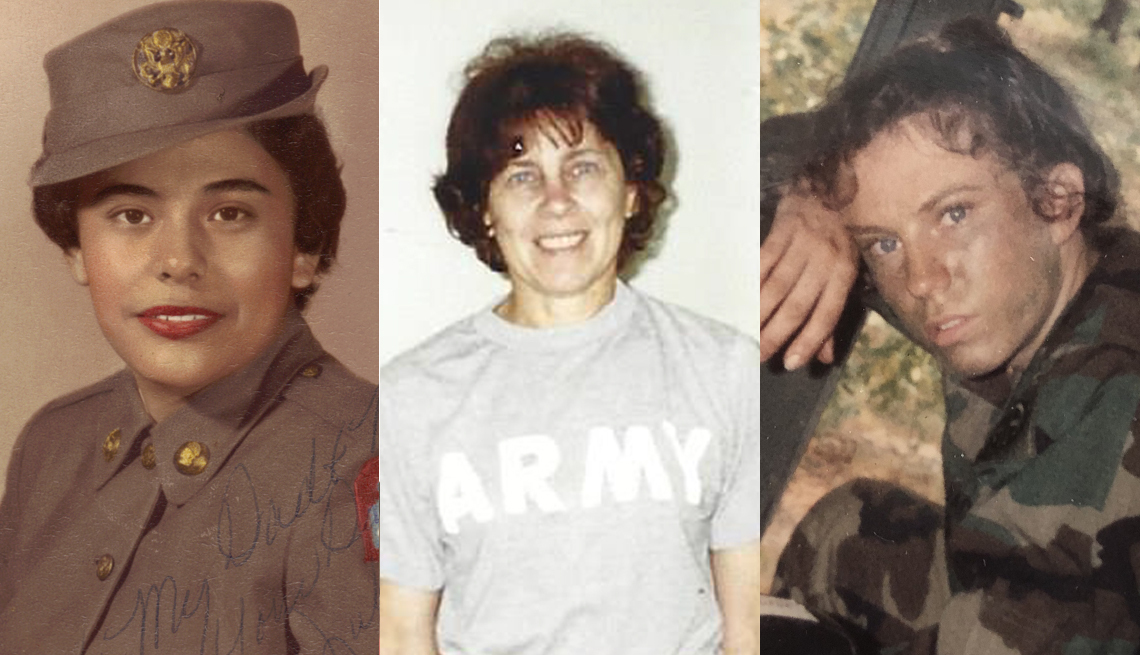Play all audios:
Castellano-Hoyt became close friends with several of the other women she served with and stayed in contact with them over the years. One would later become her son's godmother. "At
that time, they were very strict,” she noted. “They separated us from the guys. We could work side by side with them in offices and hospitals because the women then were nursing assistants.
Our barracks were in one area, and we were separated. There were guards around our barracks every night. If a man had to come into our barracks, somebody had to be on the alert and yell
‘Man on the floor,’ and we all scattered.” The WAC was disbanded in 1978, when women were integrated into the Army alongside men. Castellano-Hoyt left the military in 1961 with the rank of
Specialist 4th Class. She continued her lifetime of public service, working for the city of San Antonio, Texas, where she still lives. Her last position was chief of staff to Mayor Bill
Thornton. "I have five brothers, all of whom have served in the military,” she said. “And my son is military retired. My godson, who's my nephew, is a captain right now and is a
helicopter pilot. I didn't start the tradition; my uncle served in World War II and then Korea. But we do have a family history of over more than 100 years of total military service to
this country, and we are all Hispanic.” Today she is a charter member of the Women in Military Service for America Memorial, located in Arlington, Virginia. SHIRLEY GERRIOR, 71, COLONEL
(RETIRED) In the early 1980s, Shirley Gerrior joined the Army Reserves as a dietitian, serving in general hospitals, field hospitals and medical groups. For 23 years she balanced her day job
as a clinical dietitian with the Reserves requirement of serving one weekend a month and two weeks a year of active duty. In 2003, though, she was called to Fort Campbell, Kentucky, for
active duty in support of Operation Noble Eagle, which aided federal, state and local agencies, in response to the September 11, 2001, terrorist attacks. Gerrior backfilled for soldiers who
were sent abroad and assisted in training to support the medical needs of the 101st Airborne Division. Courtesy Shirley Gerrior "I had a day's notice to get ready,” she said. “You
have to be ready to heed the call, and one day wasn't very much. You always have this bag packed — your duffel bag is ready; you have all your gear." During the four months she was
there, she made friendships that continue to this day. "You get to know people, and they're very supportive to you as a female,” Gerrior said from her home in Wilmington, North
Carolina. “We would be out in tents, and we'd have to go to the bathroom and latrines and whatever, so you're exposed to a lot of different types of things, and women were there to
support.” She thinks women's nurturing instinct is part of the reason why most medical units had more women than men. “[Women are] focused on health and well-being, and so there is
that climate. I found that in that type of environment that's supportive.” Gerrior acknowledged that garnering respect for her service hasn't always been easy. “If you're with
a male spouse, when someone says they're in the military, they'll always look to the male and not the female. It's in some cases, the female is almost invisible. Respect
women for their service; recognize their service." _Editor's note: This story has been updated with new information._

